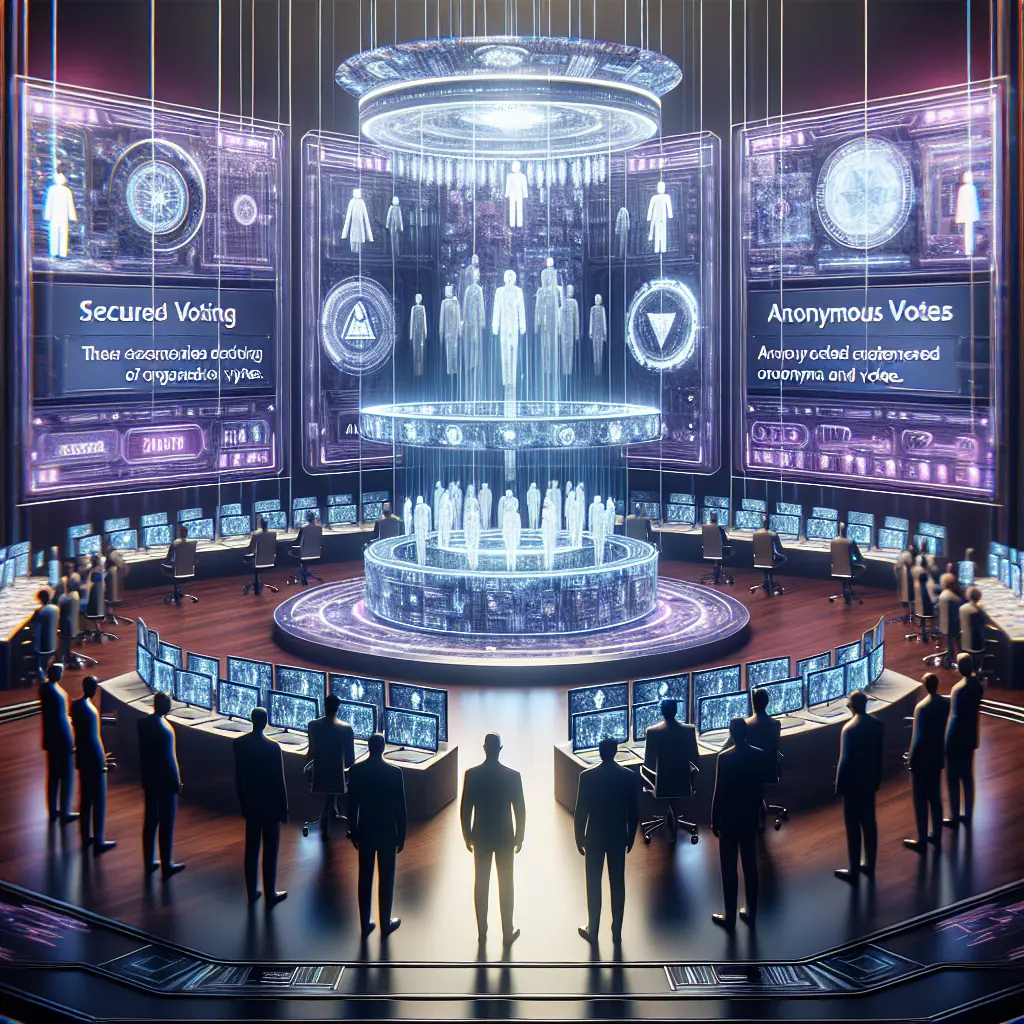
The transformative power of blockchain technology is reshaping various industries, and one area ripe for revolution is the electoral process. Blockchain voting, leveraging the inherent strengths of this technology, offers a promising alternative to traditional voting mechanisms, which often grapple with challenges related to security, transparency, and voter privacy.
Blockchain Technology Trends and Secure Voting Systems
Recent events, such as the Bitcoin 2024 conference in Nashville where Donald Trump’s enthusiasm for cryptocurrency was palpable, highlight the growing intersection of blockchain technology with mainstream and political arenas. Despite concerns about the volatility that high-profile endorsements can bring to cryptocurrencies [source needed], these discussions also bring blockchain more firmly into public consciousness as a tool for potentially enhancing democratic processes.
The Future of Voting: Digital and Decentralized
The future of voting appears to be digital, with blockchain at the helm as a solution that promises to enhance electoral transparency and integrity. Blockchain election systems employ decentralized ledgers to record votes, thereby minimizing risks of tampering and ensuring that each vote is counted as cast. Cryptographic voting solutions within these systems help safeguard voter privacy while maintaining public confidence in the electoral process.
Transparent Voting Systems: The Role of Smart Contracts
Smart contracts for voting are self-executing contracts with the terms of the agreement directly written into lines of code. These contracts facilitate and enforce the performance of credible elections without third parties. By automating aspects of the electoral process, such as vote counting, smart contracts contribute to transparent voting systems where results are immediately visible and indisputable [source needed].
Blockchain in Electoral Processes: A Case Study
Recent initiatives have seen blockchain being piloted in various electoral scenarios. For instance, projects like Voatz have been tested in small-scale elections and party primaries in the United States, aiming to address issues of accessibility and security [source needed]. However, blockchain voting systems are not without their challenges. Concerns around technology adoption, digital literacy among the electorate, and the digital divide must be addressed to fully realize the potential of blockchain in electoral processes.
Blockchain Vote Verification and Anti-Fraud Voting
Blockchain technology's ability to provide a verifiable and immutable ledger of transactions makes it an excellent candidate for combating electoral fraud. Blockchain vote verification processes ensure that each vote is recorded only once and cannot be changed once entered into the blockchain, barring any instances of double-voting or result manipulation.
Integrating AI with Blockchain for Enhanced Electoral Integrity
The integration of AI with blockchain technologies could further enhance electoral integrity. For instance, AI can be used to detect patterns indicating fraudulent activity within a blockchain network. Grayscale’s new fund focused on AI cryptos points towards a future where AI’s analytical power could be directed towards maintaining blockchain security, especially within critical applications like voting [source needed].
Global Adoption and Regulatory Hurdles
While countries like Estonia have long embraced digital solutions for voting, others are cautiously considering regulatory frameworks that could support such transitions. Russia’s move towards potentially legalizing cryptocurrencies amid international sanctions could indirectly foster a more blockchain-friendly regulatory environment [source needed]. This sets a precedent that could encourage other nations to explore decentralized digital voting solutions.
Privacy Concerns and Voter Confidence
Privacy remains a paramount concern in digital voting. Blockchain for voter privacy can offer a unique solution by anonymizing votes while ensuring they are verifiable. Such cryptographic solutions can protect voter identities while maintaining the public ledger’s integrity.
Future Blockchain Voting Technologies
Looking ahead, future blockchain voting technologies may include more advanced cryptographic techniques like zero-knowledge proofs, which allow for the verification of information without revealing the information itself. This could further secure digital ballots and protect voter anonymity, enhancing confidence in digital voting systems.
Challenges and Considerations
Despite the optimistic view on blockchain's role in secure voting systems, several challenges persist. Technical issues, scale limitations, voter education, and resistance from traditional institutions are significant hurdles. Moreover, incidents like the recent hacking on X (formerly Twitter) underscore the importance of robust cybersecurity measures surrounding decentralized technologies [source needed].
Conclusion: Embracing Blockchain for Democratic Elections
As we move towards more technologically advanced electoral systems, blockchain stands out as a promising tool that can deliver secure digital ballots, enhance electoral transparency, and protect against fraud. However, embracing this technology requires careful consideration of its implementation challenges and potential risks.
The journey towards fully integrating blockchain into our electoral processes is just beginning. As this technology evolves, so too will our ability to harness it for more secure, transparent, and democratic elections.
Thank you for joining me on this exploration into the future of blockchain in voting systems. Until next time, keep your votes secure and your data protected.
Author: Felicia Conrad